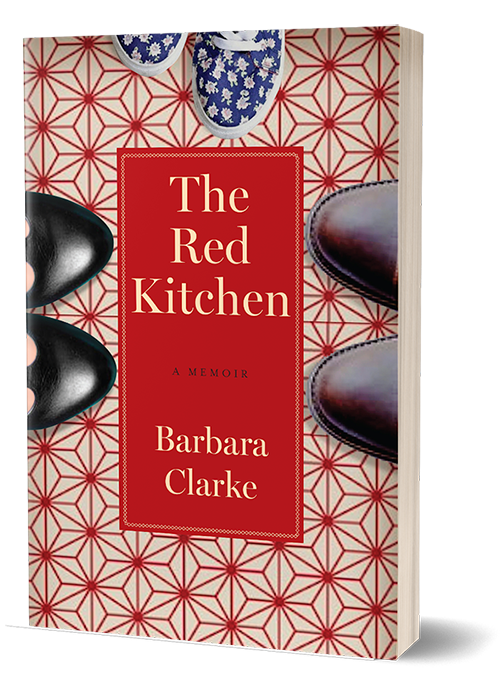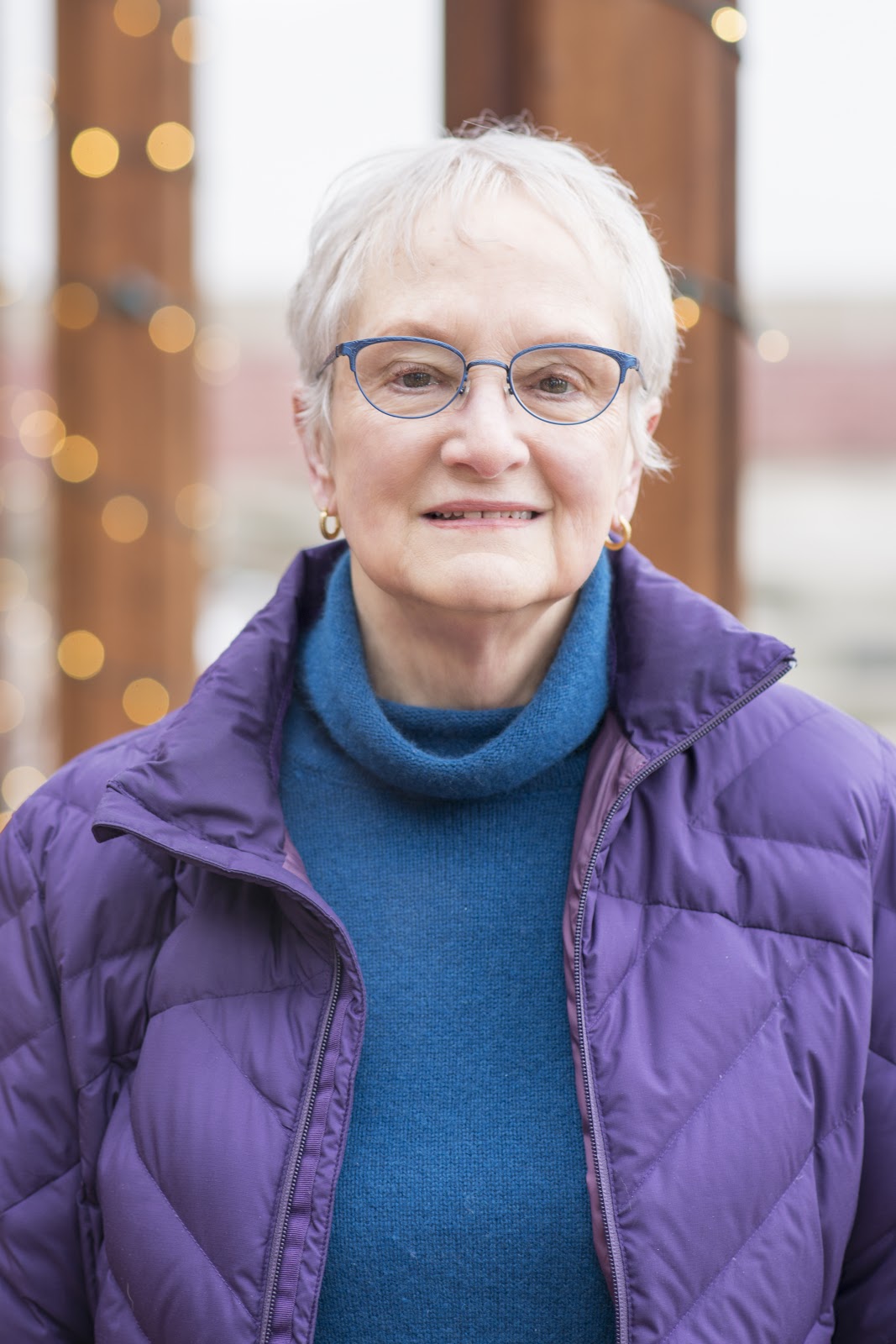Intimate memoir depicts change and discovery between mom and daughter — and how it’s never too late to come of age
 Bellingham, WASHINGTON – It’s never too late to find and mend the broken places within ourselves and in our relationships with others. This is exemplified in Barbara Clarke’s compassionate story exploring the long-term effects of an early betrayal of a child and how that transforms her life. In “The Red Kitchen,” (April 6, 2021, She Writes Press) Clarke shows how to keep a sense of humor in the worst of times — part understanding and part forgiveness — and describes how to work with memory, trust and finding long-term solutions to trauma.
Bellingham, WASHINGTON – It’s never too late to find and mend the broken places within ourselves and in our relationships with others. This is exemplified in Barbara Clarke’s compassionate story exploring the long-term effects of an early betrayal of a child and how that transforms her life. In “The Red Kitchen,” (April 6, 2021, She Writes Press) Clarke shows how to keep a sense of humor in the worst of times — part understanding and part forgiveness — and describes how to work with memory, trust and finding long-term solutions to trauma.
Mother-daughter relationships are notoriously tricky. Add to that a secretive father and an aloof husband, and you have the makings of a memoir full of grit, honesty, and humor. This account is really about two women, Clarke and her mother, who both surrendered for years to society’s expectations before realizing there’s more to life than just being a wife, mother and dutiful daughter. How about being yourself?
A summer spent in a small village in Kenya allowed Clarke to discover why everyone mattered, especially her mother, and that simple is often better. She embraced a new aspiration: to be a complete person — funny, compassionate, complex and often flawed. Both women, in incredibly different ways, come of age, find the loving parts of their early relationship and start living their best lives, all the while detailing how to live with issues ranging from aging parents, sexuality, and the long-term effects of trauma on women and girls.
Early praise for Barbara Clarke and “The Red Kitchen”
“[Barbara’s] own poetic turns of phrase and biting metaphors brighten the work and deepen its impact, illustrating mindful ways of navigating one’s circumstances.”
— Foreword-Clarion Reviews
“ ‘The Red Kitchen’ is a lyrical and painful chronicle of a dysfunctional — and typical — American family. Barbara Clarke’s engaging coming-of-age story during the 1950s and 1960s and beyond involves growing up in this difficult family and then returning to it in order to find healing and, finally, redemption. It is also the story of a woman’s slow but steady shift from meeting everybody else’s expectations toward striving to realize her own dreams. A vivid and well-written memoir.”
— Priscilla Long, author of
“Fire and Stone: Where Do We Come From? What Are We? Where Are We Going?”
“Clarke is fearless in her assessment of her experiences, her relationships and herself. Her insights ring true, her enthusiasms are contagious, and her writing (especially about the often murky complications of human sexuality) is first-rate. I’ve been reading a lot of memoirs recently, and I’d put ‘The Red Kitchn’ right up there with my favorites.”
— Molly Giles, author of
three award-winning story collections, most recently “All the Wrong Places”
“As a woman in midlife, Barbara takes on the challenge of traveling overseas as part of a group of social service providers and, while in a totally foreign land, confronts not only her own personal ennui, but also her whiteness and connection to the colonialism that has created chaos in much of the world. … And in so doing, she discovers that she is changed forever. … These chapters inspire me to get outside of my comfort zone, just as Clarke did, and offer myself a chance to let discomfort transform me.”
— Cami Ostman, founder of The Narrative Project and author of
“Second Wind: One Woman’s Midlife Quest to Run Seven Marathons on Seven Continents”
“In her memoir ‘The Red Kitchen,’ Barbara Clarke braids pathos and humor deftly and with great compassion and honesty. Her chapter ‘Good Vibrations’ is hilarious, wise and gentle.
— Andrew Shattuck McBride, co-editor of For Love of Orcas
“The Red Kitchen”
Barbara Clarke | April 6, 2021
She Writes Press | Memoir
Paperback | 9781647420086 | $16.95
Ebook | $9.95
 About the Author
About the Author
In the past, Barbara Clarke has written extensively for corporate clients, trade magazines, worked under a Robert Wood Johnson Foundation grant, non-profit organizations as a grant writer, and for local and alternative newspapers on a variety of topics.
In 2009 she published an indie memoir, “Getting to Home: Sojourn in a Perfect House,” about the process of building a house as a single woman. Other publications followed. For more info, visit https://barbaraclarke.net/.
In an interview, Barbara Clarke can discuss:
- The challenges of unearthing old memories of trauma and the risk of not being believed
- How the conversation around long-term effects of trauma to women and validating their experiences has changed through the years
- How important learning to live together as mother and daughter is, especially during a pandemic
- How sharing the good and bad of a family can help others with their journey of discovery
- The role of women in families and in the workplace
An Interview with Barbara Clarke
1. This book is a prime example that someone is never too old to come of age. How did you and your mother recognize this when you were in your 40s and when she was in her 70s?
I had to completely leave the country and all of the labels — mother, wife, daughter, sister — to find out who I had become and what I wanted to be. For my mother, the death of her controlling husband opened up her world and what she had missed most of her life.
2. A standout story from the book is about buying your mother a vibrator. How did you approach talking about sex with her?
My mother was always curious about sex. She told me just before I married at age 20 that “sex can be beautiful.” I knew even before that it wasn’t for her. After we reconciled, long walks on the beach were her way of really talking about sex and confessing her lack of orgasms. I decided to remedy the situation.
3. What are some tools that have served you in surviving a chaotic or traumatic childhood?
I was fortunate to find good therapists, had close women friends who listened and advised, and had a kind of grit from early childhood that allowed me to survive the chaos. Due to an early betrayal, I was a very young observer and had formed fairly good survival skills. Once we’re adults, those tools often don’t continue to serve us, and the trick is to find new adult tools.
4. How are you and your daughters now managing as mother and daughters?
I have lived with my oldest daughter for more than 10 years, and we are still working things out. I am still her mother and push buttons from her childhood and she mine as her mother. We have worked hard to develop better talking skills and try to treat an “incident” however small as soon as possible.
5. Has the role of women in families and in the workplace changed all that much? How has COVID-19 affected this?
Women still do most of the child rearing, household management, and often meals, shopping and laundry. While men are learning, it’s still uneven. The debate about nature (men)/nurture (women) is still going on. Meanwhile, with the COVID-19 arrival, many women are back home working, managing their children, or having to go to work under the worst circumstances. Working-class mothers are especially affected by the pandemic at home and at work. Service workers and caregivers, in particular, are still making the lowest wages and doing the hardest work.
6. What do you hope readers gain from reading about your relationship with your mother?
I hope that readers see that reconciliation and love is possible even when things get off to an incredibly rocky start. I hope readers find that the human condition is terribly flawed, often funny and touching in the way mothers and daughters bond, un-bond and come together again as adults. I would also hope they see that mothers and daughters can be true allies and friends but need to understand that there is still a mother and a daughter and a history. And finally, that they’ll discover that forgiveness might be too much of a stretch (not even a person’s job or right to do that) but that regard and understanding and love is possible — with lots of work to get there.

A former award-winning journalist with national exposure, Marissa now oversees the day-to-day operation of the Books Forward author branding and book marketing firm, along with our indie publishing support sister company Books Fluent.
Born and bred in Louisiana, currently living in New Orleans, she has lived and developed a strong base for our company and authors in Chicago and Nashville. Her journalism work has appeared in USA Today, National Geographic and other major publications. She is now interviewed by media on best practices for book marketing.
